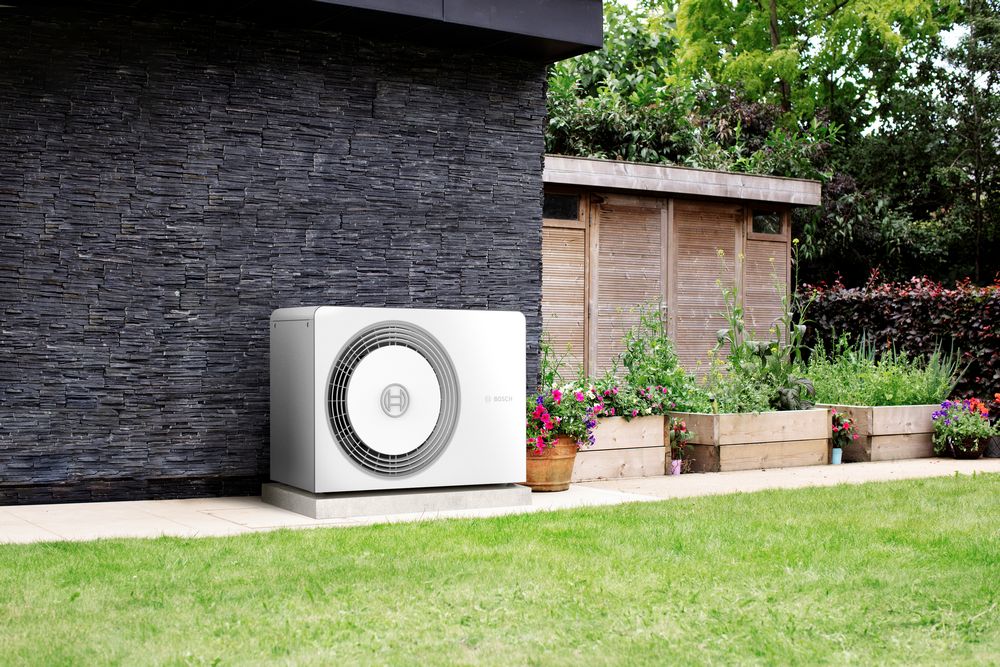As the demand for energy-efficient solutions grows, more homeowners in London are turning to heat pumps as a sustainable alternative to traditional heating methods. One of them is air source heat pumps, but before getting them installed, most people ask us how heat pumps work and why they are considered a reliable, energy-efficient option.
In this blog post, we'll break down the science behind heat pumps, explain their benefits and help you understand why they might be the perfect solution for your home.
South London Heating is your local expert in installing and maintaining air source heat pumps and other heat pump systems, ensuring your home stays warm while lowering your carbon footprint. Call us today on 0203 620 5800 or email us at hello@southlondonheating.co.uk for more information.
South London Heating, your trusted partner in sustainable, energy-efficient heating solutions for a warmer, greener home.
Heat Pumps And Their Types
A heat pump is a versatile, energy-efficient way to heat your home and hot water. Unlike conventional heating systems that burn fuel to create heat, heat pumps transfer heat from the outside environment into your home, making them much more energy-efficient.
Here are a few different types of heat pumps that work in unique ways to extract heat from the surrounding environment:
- Air Source Heat Pumps
- Ground Source Heat Pumps
How Exactly Do Air Source Heat Pumps Work?
Now that you know what heat pumps are and their types, here is how the most effective and efficient air-source heat pumps work.
Air source heat pumps (ASHPs) are an innovative and efficient way to heat your home and provide hot water. They work by harnessing heat from the air outside, even when temperatures drop to as low as -15°C.
Here’s how the process works:
1. Absorbing Heat From The Air
The heat pump contains a unit located outside your home, similar in size to an air conditioning unit. This external unit absorbs heat from the surrounding air, even in colder weather.
2. The Refrigerant Cycle
Once the air is drawn into the pump, it passes over a coil filled with a special refrigerant liquid. The refrigerant is designed to absorb heat very efficiently. As the outside air passes over the coil, the refrigerant warms up and changes from a liquid to a gas.
3. Compression To Increase Temperature
The pump’s compressor then compresses the refrigerant gas. This increases the gas’s temperature, making it hot enough to heat your home.
4. Transferring Heat Into The Home
The hot refrigerant is passed through a heat exchanger, releasing its stored heat into a water-based heating system, such as radiators or underfloor heating. This process raises the temperature of the water, which is then circulated in the home to warm it.
5. Cooling And Returning To The Cycle
After releasing the heat, the refrigerant cools and turns into a liquid. It returns to the pump to be reheated, and the cycle repeats. This continuous loop allows the system to provide a steady and consistent heat supply.
Why Are Air Source Heat Pumps So Energy Efficient? Let's Explore Its Benefits
1. High Coefficient Of Performance (COP)
Air source heat pumps are efficient because of their Coefficient of Performance (COP). A heat pump can provide more heat energy than the electrical energy it consumes. For every unit of electricity used, an air source heat pump can generate 3 to 4 units of heat, meaning it has an efficiency of over 300%. This makes it far more energy-efficient than conventional systems like gas boilers which are typically 90% efficient.
2. Extracting Heat From The Air
Unlike traditional heating systems that generate heat by burning fossil fuels, heat pumps work by extracting heat from the air outside, even in colder weather. This is an incredibly efficient method since the heat is transferred from the outside environment into your home, not created through combustion. The refrigerant inside the pump absorbs heat from the air and uses that energy to heat your home, reducing the need for additional energy consumption.
3. Utilising Existing Heat Energy
Heat energy in the air can still be harnessed even when the temperature outside drops. Air source heat pumps use a heat exchanger to absorb and transfer this energy effectively. This means that even during winter months, air-source heat pumps can still perform optimally. Extracting usable heat energy from the air makes heat pumps adaptable and efficient in various climates.
4. Reduced Carbon Emissions
One of the biggest advantages of air-source heat pumps is their ability to reduce carbon emissions. Since they don't burn fuel to produce heat, they contribute significantly less to global warming than fossil fuel heating methods. This makes them a key player in helping the UK meet its Net Zero targets by reducing reliance on gas boilers and other high-emission heating systems.
5. Low Maintenance And Long Lifespan
Heat pumps are not only efficient in terms of energy usage, but they are also low maintenance. With proper installation and servicing, air source heat pumps can last up to 20 years, providing consistent heating throughout their lifespan. These systems' minimal wear and tear further contribute to their efficiency, as they don’t require frequent repairs or replacements like older gas boilers.
6. Enhanced Comfort And Hot Water Supply
An air-source heat pump is designed to provide heating and hot water to your home. It uses the same energy-efficient principles to generate hot water, making it a versatile solution. The system continuously extracts heat from the air and provides consistent warmth in your home, ensuring a high level of comfort year-round. Whether heating the home or producing hot water, you’ll benefit from a stable, low-cost energy supply.
7. Government Grants And Incentives
As part of the UK’s commitment to reducing carbon emissions, the Boiler Upgrade Scheme and other government grants make air source heat pumps even more affordable for homeowners. With financial incentives, the initial investment in a heat pump system becomes more accessible, allowing you to switch to a more energy-efficient home at a fraction of the cost.
CONTACT SOUTH LONDON HEATING
Conclusion
So, that’s all about how a heat pump works and why air source heat pumps stand out as a highly energy-efficient and eco-friendly choice among London homeowners.
If you want to upgrade your heating system and make your home more energy-efficient, South London Heating is your local air source heat pump installation and maintenance expert.
Call us today on 0203 620 5800 or email us at hello@southlondonheating.co.uk to learn more.
FAQs
1. How does a ground source heat pump work?
A ground source heat pump works by circulating a fluid through pipes buried in the ground to absorb heat, which is then extracted and transferred into the building's heating system, providing energy-efficient heating and cooling.
2. How does an air source heat pump work?
An air source heat pump works by extracting heat from the outside air, using a refrigerant to absorb and compress the heat, and then transferring it into your home’s heating system, providing efficient heating or hot water.
3. What is the typical lifespan of an air source heat pump?
The typical lifespan of an air source heat pump is around 15 years with proper maintenance, but with good care and regular servicing, some units can last up to 20-25 years.
4. Will an air source heat pump increase my energy bills?
No, an air-source heat pump is generally not expected to increase energy bills. It can often lower them, especially if replacing an older, less efficient gas boiler due to its higher energy efficiency.
5. What maintenance is required for an air source heat pump?
Regular air source heat pump maintenance includes cleaning or replacing filters, clearing debris around the outdoor unit, cleaning coils, checking electrical connections, monitoring refrigerant levels, and scheduling annual professional servicing for comprehensive checks.





